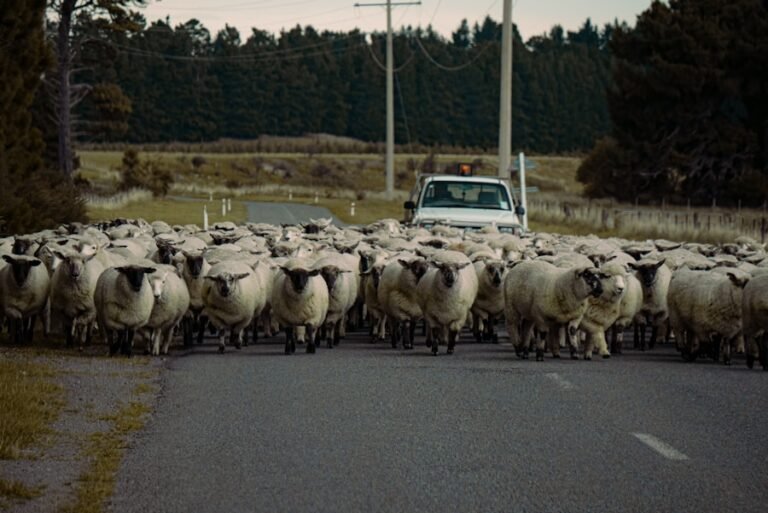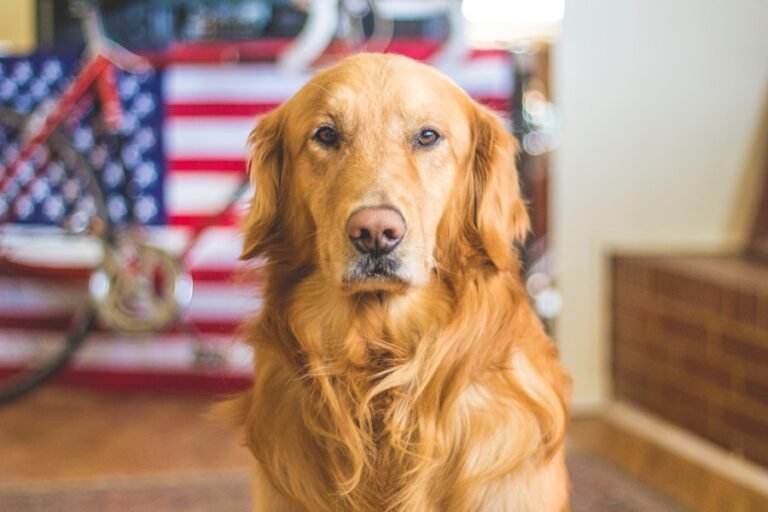Unraveling the Origins of Border Collie Dogs: A Look into Their Fascinating History
The Border Collie is a breed of herding dog that originated in the border region between Scotland and England. The breed’s name is derived from its geographical origins, as it was developed in the border region of the two countries. The exact origins of the Border Collie are not well-documented, but it is believed that the breed has been around for several centuries. The Border Collie is descended from the landrace collie, a type of herding dog that was common in the British Isles. These early collies were valued for their intelligence, agility, and herding instincts, and they were used by shepherds to manage and control livestock.
The Border Collie’s development as a distinct breed can be traced back to the 19th century, when the need for efficient and effective herding dogs became increasingly important in the border region. The breed’s early development was influenced by the introduction of new sheep breeds, which required a different approach to herding. As a result, the Border Collie was selectively bred for its herding abilities, and it quickly gained a reputation as one of the most skilled and versatile herding dogs in the world. Today, the Border Collie is known for its exceptional intelligence, intense work ethic, and unwavering dedication to its work, making it a highly sought-after breed for herding and other working dog activities.
The Influence of Sheepdogs on the Development of the Border Collie
The development of the Border Collie was heavily influenced by the role of sheepdogs in the British Isles. Sheepdogs have been an integral part of agriculture and livestock management in the region for centuries, and their herding abilities were highly valued by shepherds and farmers. The early collies, from which the Border Collie descended, were used as general-purpose herding dogs, capable of working with a variety of livestock, including sheep, cattle, and pigs. As the demand for more specialized herding dogs grew, the Border Collie emerged as a distinct breed with a focus on herding sheep.
The influence of sheepdogs on the development of the Border Collie can be seen in the breed’s natural instincts and working style. Border Collies are known for their intense focus, exceptional problem-solving skills, and strong desire to work closely with their handlers. These traits are a direct result of the breed’s long history as a herding dog, and they continue to be highly valued by farmers, ranchers, and other working dog enthusiasts. The Border Collie’s ability to anticipate and respond to the movements of livestock, as well as its willingness to take on challenging tasks, are all traits that have been honed through generations of selective breeding and working alongside shepherds in the British Isles.
The Role of the Scottish Borders in the History of the Border Collie
The Scottish Borders region played a crucial role in the history and development of the Border Collie. The rugged and hilly terrain of the Scottish Borders presented unique challenges for sheep farming, and the need for skilled herding dogs was paramount. The Border Collie’s ancestors were well-suited to the demands of the region, and their herding abilities were highly valued by shepherds and farmers. The breed’s name itself reflects its close association with the border region, and it is a testament to the breed’s deep roots in the area.
The Scottish Borders also provided an ideal environment for the Border Collie to develop and refine its herding skills. The breed’s ability to work in challenging terrain, adverse weather conditions, and over long distances was essential for managing livestock in the region. The Border Collie’s intelligence, agility, and stamina were put to the test on a daily basis, and these traits became defining characteristics of the breed. The Scottish Borders continue to be closely associated with the Border Collie, and the breed’s heritage is celebrated in the region through events, competitions, and working dog demonstrations.
The Evolution of the Border Collie as a Working Dog Breed
The Border Collie’s evolution as a working dog breed is a testament to the breed’s exceptional herding abilities and adaptability. From its early days as a general-purpose herding dog to its specialization as a sheepdog, the Border Collie has undergone significant changes to meet the demands of modern agriculture and livestock management. The breed’s development was driven by the need for efficient and effective herding dogs, and it was shaped by the challenges and opportunities presented by the changing agricultural landscape in the British Isles.
The Border Collie’s evolution as a working dog breed can be seen in its natural instincts, working style, and physical characteristics. The breed’s intense focus, strong herding instincts, and exceptional problem-solving skills are all traits that have been honed through generations of selective breeding and working alongside shepherds. The Border Collie’s physical attributes, such as its agility, speed, and endurance, have also been carefully developed to meet the demands of herding in diverse and challenging environments. Today, the Border Collie is recognized as one of the most versatile and skilled herding dogs in the world, and its evolution as a working dog breed continues to be shaped by the needs of modern agriculture and livestock management.
The Impact of Selective Breeding on the Border Collie’s Characteristics
Selective breeding has played a significant role in shaping the Border Collie’s characteristics and working abilities. The breed’s development as a distinct herding dog was driven by the need for dogs with specific traits and skills that were well-suited to the demands of herding sheep. Over the centuries, shepherds and farmers selectively bred the Border Collie for its intelligence, agility, stamina, and strong herding instincts, resulting in a breed that is highly specialized and well-adapted to its work.
The impact of selective breeding on the Border Collie’s characteristics can be seen in the breed’s natural instincts and working style. Border Collies are known for their intense focus, exceptional problem-solving skills, and strong desire to work closely with their handlers. These traits are a direct result of the breed’s long history as a herding dog, and they continue to be highly valued by farmers, ranchers, and other working dog enthusiasts. The breed’s physical attributes, such as its speed, agility, and endurance, have also been carefully developed through selective breeding to meet the demands of herding in diverse and challenging environments. The Border Collie’s exceptional working abilities and adaptability are a testament to the impact of selective breeding on the breed’s characteristics.
The Border Collie’s Recognition as a Distinct Breed by Kennel Clubs
The Border Collie’s recognition as a distinct breed by kennel clubs is a testament to the breed’s exceptional herding abilities and unique characteristics. The breed’s long history as a herding dog, as well as its deep roots in the border region between Scotland and England, have contributed to its recognition as a distinct breed. The Border Collie’s intelligence, agility, and unwavering dedication to its work have made it a highly sought-after breed for herding and other working dog activities, and its recognition by kennel clubs has further solidified its status as a distinct and valuable breed.
The recognition of the Border Collie as a distinct breed by kennel clubs has also helped to promote and preserve the breed’s heritage and working abilities. Breed standards have been established to ensure that the Border Collie retains its unique characteristics and working style, and efforts have been made to maintain the breed’s genetic diversity and overall health. The breed’s recognition by kennel clubs has also opened up opportunities for Border Collies to compete in herding trials, dog sports, and other performance events, further showcasing the breed’s exceptional working abilities and versatility. The Border Collie’s recognition as a distinct breed by kennel clubs has been instrumental in promoting and preserving the breed’s heritage and working abilities, and it continues to be a source of pride for breed enthusiasts and working dog enthusiasts alike.
The Border Collie’s Versatility and Adaptability in Different Environments
The Border Collie’s versatility and adaptability in different environments are a testament to the breed’s exceptional working abilities and intelligence. Border Collies are known for their ability to work in diverse and challenging environments, and they are highly valued for their versatility and adaptability. The breed’s long history as a herding dog in the British Isles has honed its natural instincts and working style, making it well-suited to a wide range of tasks and activities.
Border Collies are known for their intense focus, exceptional problem-solving skills, and strong desire to work closely with their handlers. These traits make them well-suited to a variety of working dog activities, including herding, obedience, agility, and dog sports. The breed’s physical attributes, such as its speed, agility, and endurance, also make it well-adapted to working in diverse and challenging environments. Border Collies are equally at home on the open range, in the mountains, or in urban settings, and their adaptability and versatility make them highly sought-after for a wide range of working and performance activities.
The Border Collie’s Popularity as a Companion and Performance Dog
The Border Collie’s popularity as a companion and performance dog is a testament to the breed’s exceptional intelligence, agility, and working abilities. Border Collies are known for their intense focus, exceptional problem-solving skills, and strong desire to work closely with their handlers, making them well-suited to a wide range of activities and tasks. The breed’s versatility and adaptability also make it highly sought-after for dog sports, obedience, and other performance events, where its exceptional working abilities and intelligence can be showcased.
Border Collies are also popular as companion dogs, valued for their loyalty, affectionate nature, and high energy levels. The breed’s intelligence and trainability make it well-suited to a variety of activities and tasks, and it thrives on mental and physical stimulation. Border Collies are known for their strong bonds with their owners and their unwavering dedication to their work, making them highly valued as both working and companion dogs. The breed’s popularity as a companion and performance dog continues to grow, as more people recognize and appreciate the Border Collie’s exceptional working abilities and unique characteristics.
The Border Collie’s Continued Relevance in Modern Agriculture and Livestock Management
The Border Collie’s continued relevance in modern agriculture and livestock management is a testament to the breed’s exceptional herding abilities and adaptability. Border Collies are highly valued for their intelligence, agility, and unwavering dedication to their work, making them well-suited to the demands of modern agriculture and livestock management. The breed’s long history as a herding dog in the British Isles has honed its natural instincts and working style, and it continues to be a valuable asset for farmers, ranchers, and other working dog enthusiasts.
Border Collies are used to manage and control livestock in a variety of settings, including open range, pasture, and feedlot operations. The breed’s intense focus, exceptional problem-solving skills, and strong herding instincts make it well-suited to the demands of modern agriculture and livestock management, and its adaptability and versatility are highly valued by those who work with livestock. Border Collies are also used in conservation and wildlife management efforts, where their herding abilities and intelligence can be utilized to manage and protect livestock and wildlife in diverse and challenging environments. The Border Collie’s continued relevance in modern agriculture and livestock management is a testament to the breed’s exceptional working abilities and adaptability, and it continues to be a valuable asset for those who work with livestock and other animals.
The Future of the Border Collie: Challenges and Opportunities for the Breed
The future of the Border Collie presents both challenges and opportunities for the breed. As the demands of modern agriculture and livestock management continue to evolve, the Border Collie will need to adapt to new challenges and opportunities. The breed’s exceptional herding abilities and adaptability make it well-suited to the demands of modern agriculture and livestock management, but it will need to continue to evolve and develop to meet the changing needs of farmers, ranchers, and other working dog enthusiasts.
One of the challenges facing the Border Collie is the need to maintain its genetic diversity and overall health. As the breed’s popularity continues to grow, there is a risk of overbreeding and the loss of genetic diversity, which can lead to health issues and other problems. Efforts will need to be made to ensure that the breed’s genetic diversity is preserved and that its overall health is maintained. Another challenge facing the Border Collie is the need to promote responsible breeding and ownership practices, to ensure that the breed’s unique characteristics and working abilities are preserved and valued.
Despite these challenges, the future of the Border Collie also presents opportunities for the breed to continue to thrive and excel. The breed’s exceptional intelligence, agility, and unwavering dedication to its work make it well-suited to a wide range of tasks and activities, and its versatility and adaptability make it highly sought-after for a variety of working and performance events. The Border Collie’s continued relevance in modern agriculture and livestock management, as well as its popularity as a companion and performance dog, provide opportunities for the breed to continue to showcase its exceptional working abilities and unique characteristics. With careful breeding and responsible ownership practices, the Border Collie can continue to thrive and excel as a valuable and highly sought-after breed for herding, working, and companionship.








